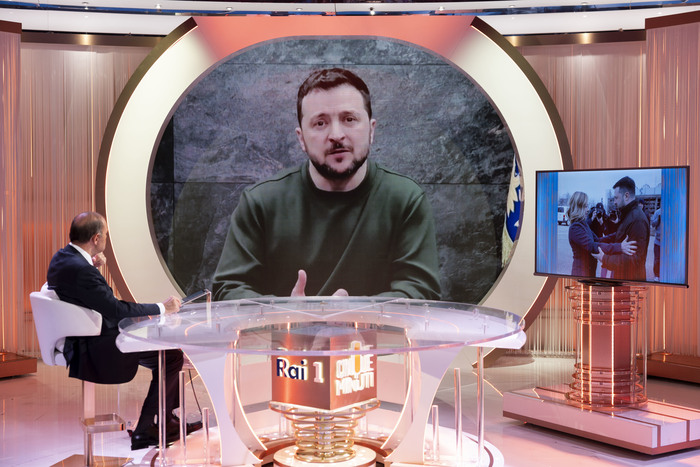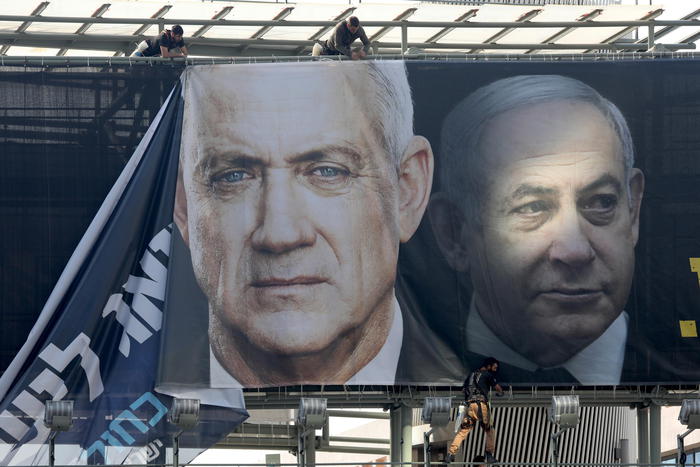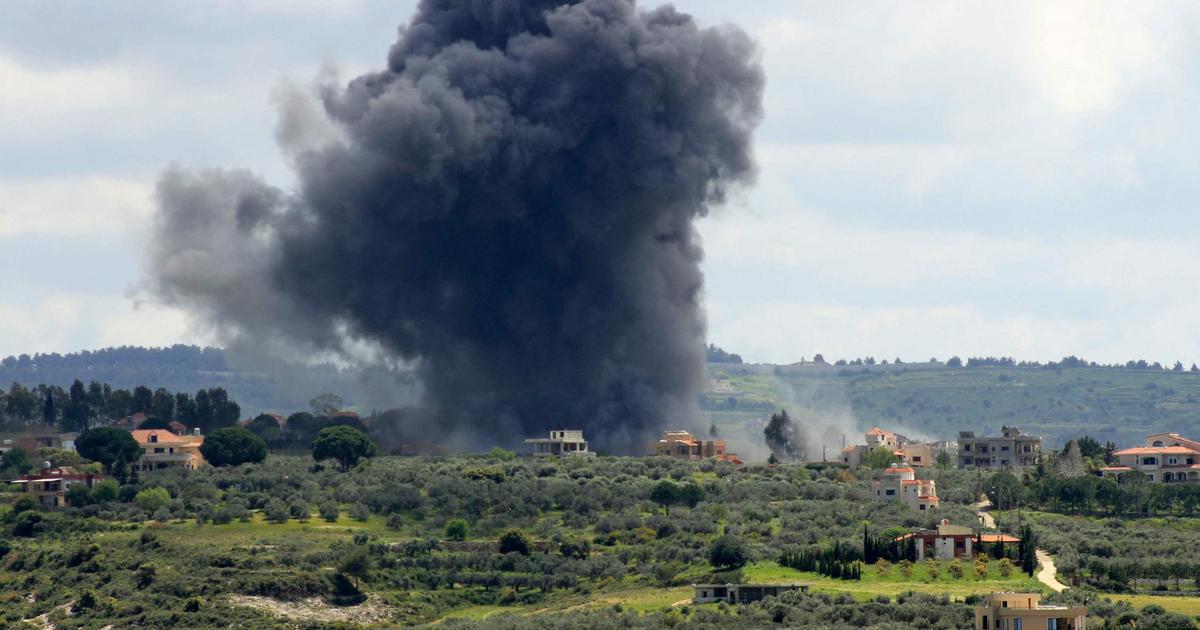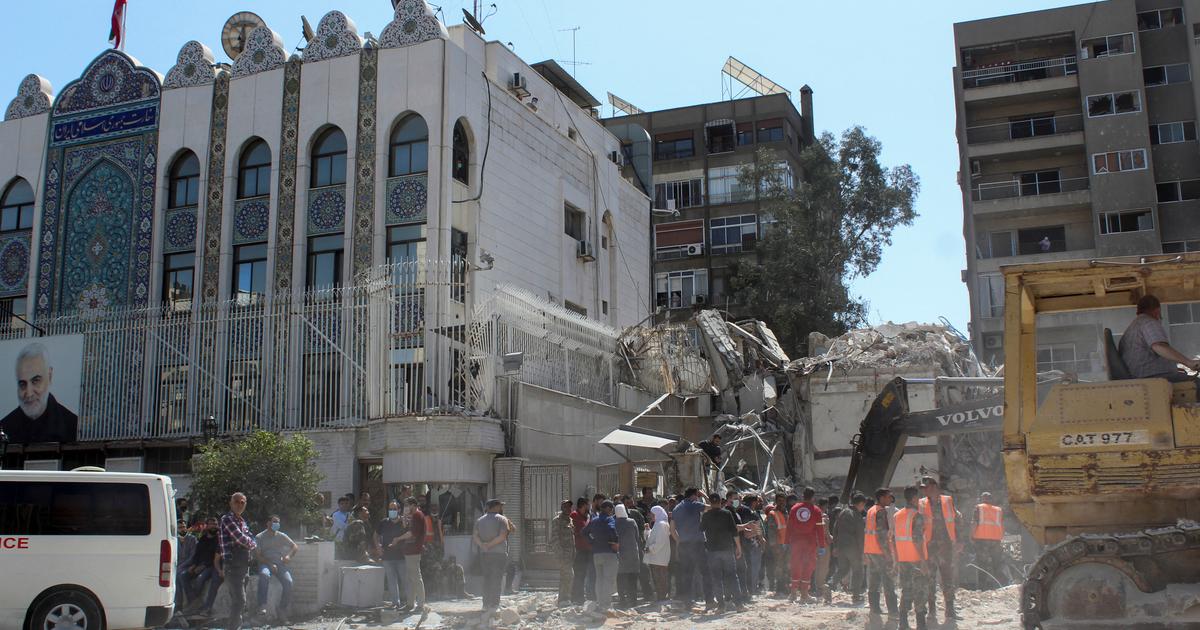The call from Berlin arrived shortly before 8pm. "Grandmother died," reported Reinhard Heydrich, head of the Reichssicherheitshauptamt, his subordinate Alfred Naujocks. The SS-Sturmbannführer waiting at the Hotel Haus Oberschlesien in Gliwice already had experience with secret orders, political murders and bomb attacks. He knew exactly what the coded command meant: with half a dozen men, he was supposed to fake a Polish raid on the local radio station. The horde stormed the building next to the 118 meter high mast and overwhelmed the staff.
Minutes later, voices roared into the microphone: "Attention, respect! Here's the Polish Insurgent Union Radio Gleiwitz is in our hands The hour of freedom has come." A sound document with the precise wording of the speech in partly Polish, partly German language is not known; However, contemporary witnesses agree that it ended with "Long live Poland!"
A short time later, an SS commando stormed a German forester's lodge near the town of Pitschen northwest of Gliwice; In addition, SS members in Polish uniforms attacked the German border post in Hochlinden and demolished the customs house.
photo gallery
16 pictures
Fake Gliwice robbery: "The thing rolls"With the staged attacks on August 31, 1939, the Hitler regime wanted to prepare Germany and the world for war against Poland. Already at 22.30 clock reported the Reichsrundfunk the raid on the transmitter Gliwice and other alleged border incidents. Millions believed what they heard from their people's recipients.
The following day, the "Volkischer Beobachter" reported on an alleged "prepared attack by Polish insurgent gangs involving regular soldiers". "How Germany's counter-strike became necessary", headlined the "Deutsche Allgemeine Zeitung". It was the prelude to the Second World War. Hitler announced on September 1 in a Reichstag speech, which was broadcast on the radio: "Since 5.45 clock is now shot back."
Staged provocations in the "Zank Province"
That was doubly wrong: "Back shot" was a brash propaganda lie to justify the attack on Poland. And the time specification was wrong. Already at 4.45 clock had the training ship "Schleswig-Holstein" to fire on the Polish ammunition depot on the peninsula Westerplatte near Gdansk (the logbook, the 19-year-old cadet Hans Buch wrote and drew, can be found here). At about the same time, dive bombers attacked the Polish city of Wielun.
Afterwards, German troops rolled across the border of the eastern neighboring country in broad front. Without a formal declaration of war, 1.5 million German soldiers attacked Poland. His 1.1 million-strong army had no chance. Especially because of Germany's clear air superiority Poland was defeated within six weeks and occupied until the end of the war in 1945.
During this time, about six million Polish citizens died, including about three million Jews. Few were killed in warfare such as battles and bombing; many more became victims of systematic forced labor extermination, mass shootings and gassings - barbaric and unprecedented in history.
Video: How the Second World War began
REUTERS
After the First World War, the industrial area of Upper Silesia had been divided between Germany and Poland. In both parts of the country lived members of both nations. There was friction between Germans and Poles, but also marriages between ethnic groups. "Zank province" was the name of the writer Horst Bienek (1930-1990), born in Gliwice.
Nationalist Germans demanded the return of the Polish part of Upper Silesia and were surprised when Hitler concluded a non-aggression pact with Poland in 1934. Anyone who had read his book Mein Kampf or heard his speeches knew that Hitler was propagating the "urge to the east." In fact, for him, the treaty with Poland was just a diversionary tactic aimed at deceiving and gaining time.
"The thing rolls"
First, Hitler wanted to bring his country of origin Austria "home to the Reich" and smash Czechoslovakia. In March 1938, the Wehrmacht invaded Austria, where the majority of the population welcomed the "Anschluss" to Germany. Subsequently, the German Reich annexed the Sudetenland, Hitler declared the "Resttschechei" to the German "Protectorate of Bohemia and Moravia".
Meanwhile, Berlin was working diplomatically on an agreement with the Soviet Union: Hitler and Stalin agreed on a non-aggression pact, which provided for the partitioning of Poland in a secret clause. Thus the sinking of the country with its painful history was initiated between two great powers.
In 1939 Germany announced the non-aggression pact with Poland. On August 11, Hitler threatened that he would "smash Poland" without warning when the "smallest incident" occurred. "I will give propagandistic reason to initiate the war, whether credible or not," he explained eleven days later to the General Staff, which he had long since commissioned to prepare a war of aggression. "The leader needs a reason for war," Heydrich had already declared in early August the Gestapo leader in Opole. As head of the Reich Security Main Office, he organized the infamous prelude to the campaign eastward.
Polish-speaking SS members from Upper Silesia were prepared in a leadership school in Bernau north of Berlin for use in Gliwice and at the other two border towns. They practiced night attacks and received Polish uniforms. The Gestapo was to get "canned food" - a codeword for corpses that were to be found at the scene to prove the alleged "Polish" misdeeds.
For Gliwice was selected Franciszek (German: Franz) Honiok, 41, a representative for agricultural machinery, who lived in the German town Hohenlieben, but was known as a supporter of Poland. Honiok was arrested the night before, then stunned and shot before the robbery. For the attack on the border post Hohenlinden some concentration camp prisoners were murdered. Hitler was informed about the preparations. "Things are rolling," he said to his Foreign Minister Joachim von Ribbentrop at noon on 31 August.
Lying message via "thunderstorm microphone"
But it did not go smoothly in the evening. Heydrich had overlooked that Gleiwitz no longer broadcast its own program, but took over the broadcasts of the Reichssenders Wroclaw. Therefore, the studio's first stormers found neither a presenter nor a ready-to-use microphone for their prepared message.
However, there was a "thunderstorm microphone" to put storm warnings for the region in the program. This micro had to activate technicians at gunpoint so that the as Polish (in civilian) appearing SS men could spread their lie message. However, it was only heard in Upper Silesia. Heydrich, who sat in Berlin on the radio, could only receive the uninterrupted standard program from Wroclaw and initially believed that the action had failed.
The glitch was ultimately insignificant. "The winner will not be asked later if he has told the truth or not," Hitler had told his Wehrmacht generals on 22 August 1939 on the Obersalzberg. But in the end he was the loser and thus could not falsify the historiography; the crimes of the Nazi regime were investigated and lies exposed - as the alleged "Polish", the fake attack on the transmitter Gliwice.
Gliwice is now called Gliwice, a Polish city with a radio station and radio tower on the Radioostacja museum grounds. Visitors can enter the studio with the black desk, a telephone and a speaker. The Siemens watch from that time points to eight.
The larch timber tower, built in 1936, was once admired as a "Silesian Eiffel Tower" because of its appearance. Instead of broadcasting programs, he has for some time been making programs inaudible: in the Cold War, jammers operated here against Radio Free Europe and other radio stations that were agitating against the communist regime in Poland from the west. Today, the wooden construction, held together by 16,000 brass screws, carries satellite dishes and antennas from mobile operators.
The raid on the station 80 years ago shows how "a war is prepared and at the same time the lie that provides the reason for the war," said the historian Ralf Zerback. Commuting between Germany and Poland, Upper Silesian Franciszek Honiok, who was murdered in Gliwice, names many chronicles as the first dead of World War II.











/cloudfront-eu-central-1.images.arcpublishing.com/prisa/KMEYMJKESBAZBE4MRBAM4TGHIQ.jpg)



